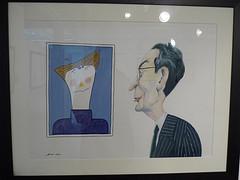 must seek the good of the material world (Science) and the inner world (spirit), to help us find a good sense to our lives, to better understand the need for the paradigm shift. Holistic education and the perennial philosophy gives us the way of our spiritual awareness, looking for new challenges for the good of oneself and of others. .Mechanistic education does not distinguish between quality and integrity, only relies on programmes, formats. .Century XXl holistic education, seeks to fill the empty human, with the evolution of consciousness. .If I want to be a better person must exist in my love, which makes me do see everything differently, deliver me without expecting anything in return.
must seek the good of the material world (Science) and the inner world (spirit), to help us find a good sense to our lives, to better understand the need for the paradigm shift. Holistic education and the perennial philosophy gives us the way of our spiritual awareness, looking for new challenges for the good of oneself and of others. .Mechanistic education does not distinguish between quality and integrity, only relies on programmes, formats. .Century XXl holistic education, seeks to fill the empty human, with the evolution of consciousness. .If I want to be a better person must exist in my love, which makes me do see everything differently, deliver me without expecting anything in return.
. As us ago mentioned Dr Ramon Gallegos that every human being should use three eyes such as the of the meat, mind and contemplation or spiritual, since with only one eye can not see the reality of things. The masters in holistic education, Dr. Ramon Gallegos Nava has a great influence in the awakening of the consciousness of every human being, living with him in each of his books different stages of integral development of being, helps us to overcome the egos, to have a vision of peace in our hearts. In these three books of dialogues Holistas with different current holistic thinkers, we speak of vision to pursue a change in all human beings. Through the influence of the perennial philosophy (Isabela Colalillo Kates), constraints that we suffer every day in our society (David Fontana), big three attitudes that are the purity of the spirit, the great yearning to know and will (Vicky Damian), education and learning as an evolution of consciousness and spirituality (Sheri R. Klein), philosophical concepts of holistic education (Jeffrey Kane), understanding integral of being (Roger Prentice), learning communities (Mark Gerzon), different cultures with high similarity (Atsuhiko Yoshida and Dr.

